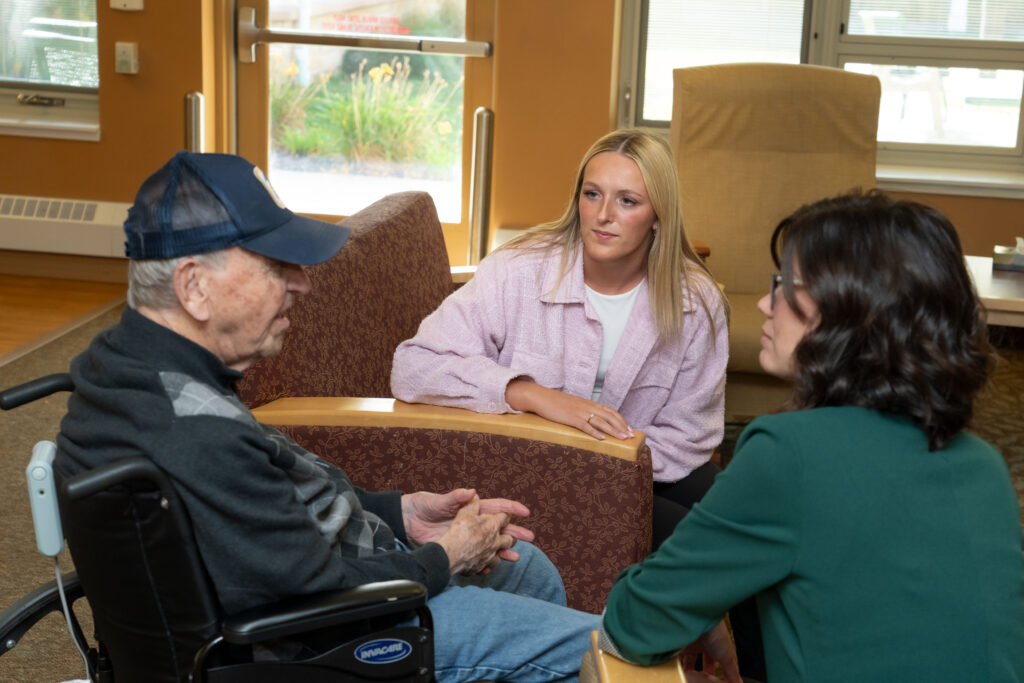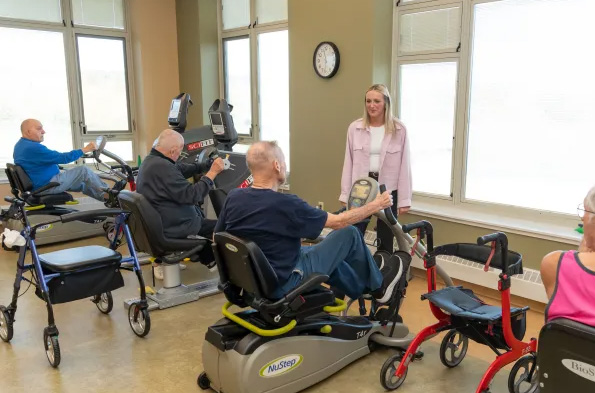
As 11,000 Americans turn 65 each day, the University of Wisconsin-Eau Claire is filling a critical need by training the country’s future healthcare leaders to oversee operations of long-term care facilities.
“We know that leadership matters,” says Dr. Jennifer Johs-Artisensi, health care administration (HCAD) program director at UW-Eau Claire. “The person at the top oversees everything, makes sure that rules are being followed. They’re driving the culture; they are setting the tone for what are going to be the core values of this organization.
“When you do your job well and create a good culture, all the rest of the pieces fall into place. You have happy patients, happy families and happy employees, and you get to feel really good about the positive difference you are making in the world.”
As the country faces a shortage of healthcare administrators, UW-Eau Claire has the only program in the state that satisfies Wisconsin nursing home administrator license requirements and is one of only 11 programs in the country accredited by the National Association of Boards of Examiners of Long Term Care Administrators.
UW-Eau Claire has had an HCAD program for more than 40 years, and been accredited for over 20 years, preparing Blugolds to step into leadership roles in the long-term care industry upon graduation.
Written by UW-Eau Claire
Link to original story: https://www.uwec.edu/stories/blugolds-prepare-be-long-term-healthcare-leaders

